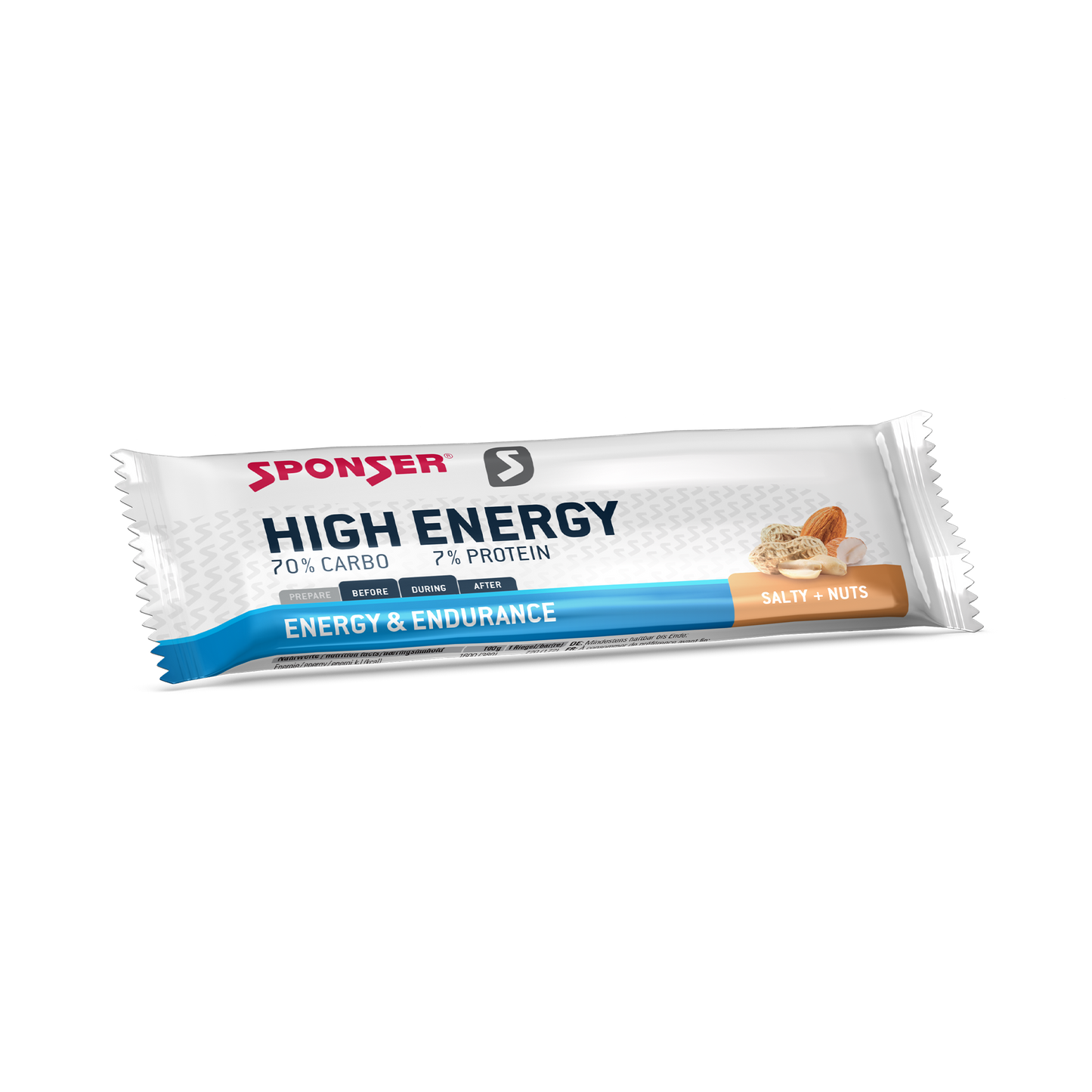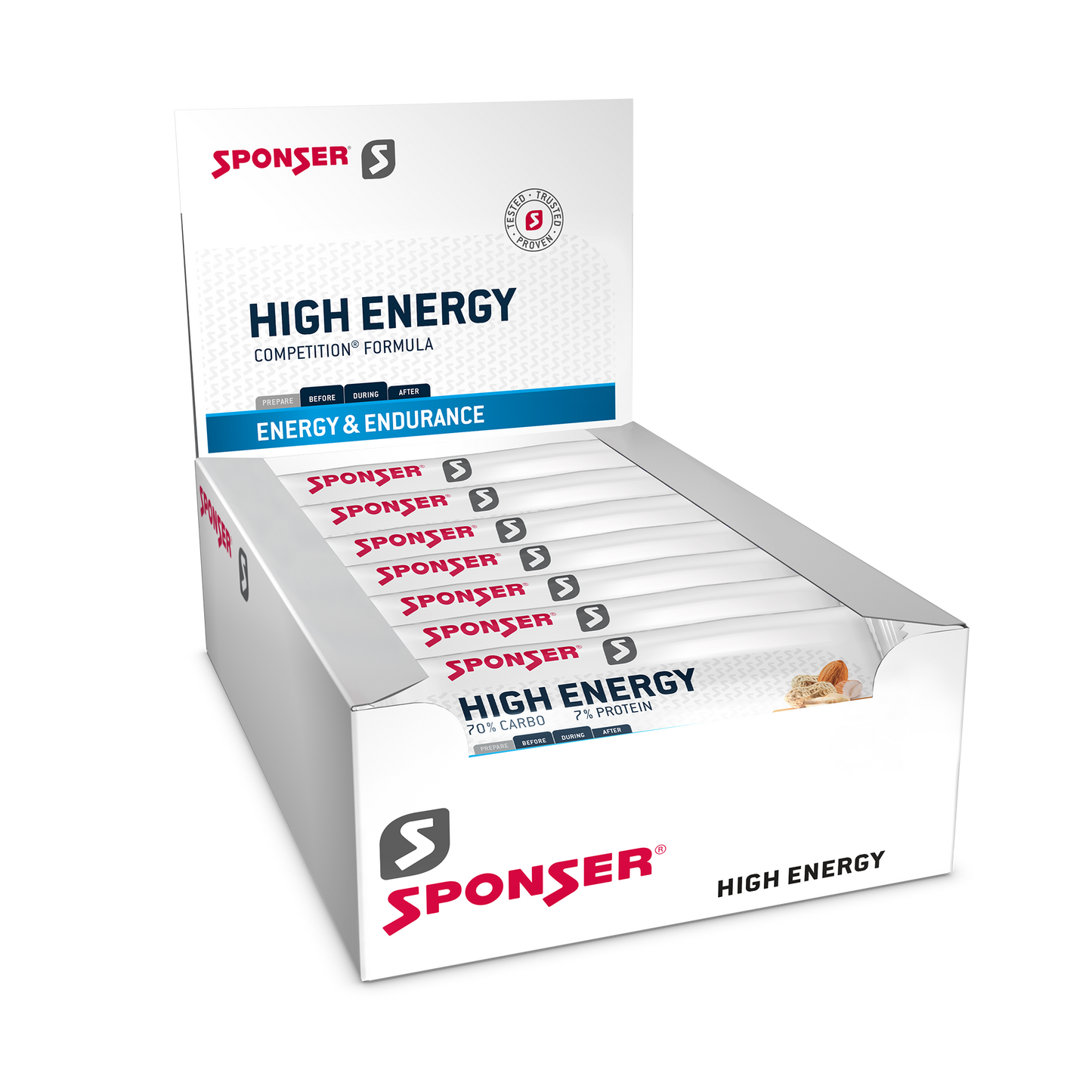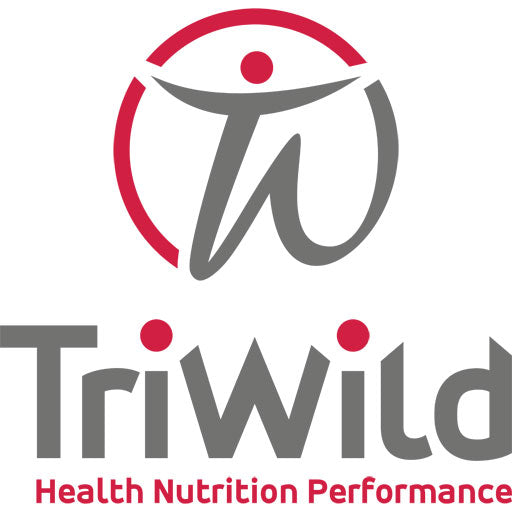

INFO
HIGH ENERGY BAR, the high-quality cereal bar from Sponser®, provides fast and long-lasting energy for your peak athletic performance!
The energy bar consists of short-, medium-, and long-chain carbohydrates, thus providing a staggered energy supply. Depending on the flavor, the added milk protein provides 7-9% protein, which is particularly important for muscle growth during long endurance exercises.
The pre-soaked oat ingredients make HIGH ENERGY BAR easily digestible, ensuring optimal tolerance even during competitive exercise. The energy bar is also enriched with medium-chain fatty acids (MCTs) from coconut and rapeseed oil, which provide additional, easily digestible energy. For years, HIGH ENERGY BAR has been a firm favorite among numerous elite athletes who rely on solid food even during competitions, especially cyclists and triathletes.
APPLICATION
Suitable for providing energy immediately before, during, or after physical activity. Can be used depending on intensity and tolerance. Also suitable as a carbohydrate-rich snack in everyday life.
NUTRITIONAL VALUES
|
|
100 g |
1 bar |
|
Energy kJ (kcal) |
1600 (380) |
720 (172) |
|
Fat |
6.5 g |
2.9 g |
|
hereof: saturated fatty acids |
1.1 g |
0.5 g |
|
Carbohydrates |
70 g |
32 g |
|
of which sugars |
34 g |
15 g |
|
Fiber |
5.8 g |
2.6 g |
|
protein |
7.3 g |
3.3 g |
|
Salt* |
1.15 g |
0.52 g |
*Calculated according to law with a factor of 2.5 (sodium content 0.46 g/100 g)
INGREDIENTS
Oat flakes, glucose-fructose syrup, crisp rice (rice flour, wheat gluten, sugar, wheat malt, glucose, salt), fructose, maltodextrin, glucose, peanuts 7%, rice flour, raisins 3%, wheat starch, almonds 1.5%, sea salt, flavorings. May contain traces of milk , egg , soy , sesame , and nuts .
Developed in Switzerland and manufactured in the Netherlands
Why should you care about fluid and salt loss?
So that you can maintain your performance for several hours
To regenerate optimally
To develop an individual catering strategy
Therefore, you should know your salt or sodium loss
The composition of sweat varies from athlete to athlete. The sodium content varies between 200 mg/l and 2300 mg/l of sweat. Sweat consists of 99% water and primarily serves thermoregulation. Sodium is the most important electrolyte and main component in sweat.
Disclaimer:
Sports physiology is constantly gaining new insights, allowing for an increasingly individualized assessment of a wide range of influencing factors. SPONSER® considers the rapid progress in measuring individual sweat and salt loss to be a relevant topic for sports nutrition due to the highly individual variations. Such a measurement can be an interesting and potentially performance-enhancing tool for competitive athletes.

